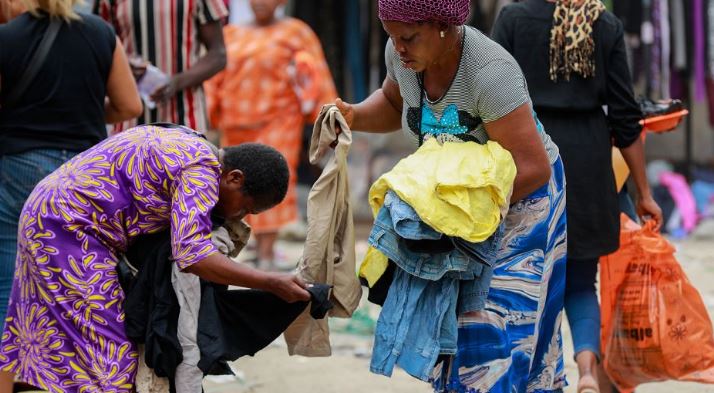REUTERS/Temilade Adelaja Kenyans have been forced to find creative ways of staying in business amid the COVID-19 pandemic which prompted the government to impose restrictive measures.
The East African country has reported 11,673 infections and 217 deaths, making it one of the worst affected countries by the disease in Africa.
In a bid to curb further spread of the disease, the government in March imposed various restrictions on travel and day-to-day lifestyles.
The measures included a ban on foreign travel and travel to some parts of the country, a nighttime curfew and a closure of public gatherings.
Many businesses were forced to shut because they could not re-stock their products with the lockdown in place.
The restrictions compounded an already suffering market, which was hard hit by public skepticism regarding health safety.
In a bid to keep their businesses running, some traders opted to take their businesses online.
Betty Mbura, a 32-year-old second-hand shoe trader from northwestern Kenyan county of Laikipia said she is keen to jumpstart her business as she has now moved her it to the digital platforms.
“My tech-savvy son noted that having a digital presence for my business would help increase my revenues that were dwindling because of COVID-19 related restrictions,” Xinhua quotes Mbura, adding that “he was not wrong, things are looking up.”
The online trading venture has been made possible by Kenyans widespread use of mobile money and digital platforms.
Kenya is one of the world’s leaders in mobile money services, after telecoms operator Safaricom pioneered its M-Pesa service 12 years ago to cater for Kenyans without access to the formal banking network and enable mobile money transfers.Data from the Communications Authority of Kenya shows that as of December 2018, Kenya had 31.6 million active users of mobile money transfer services.
